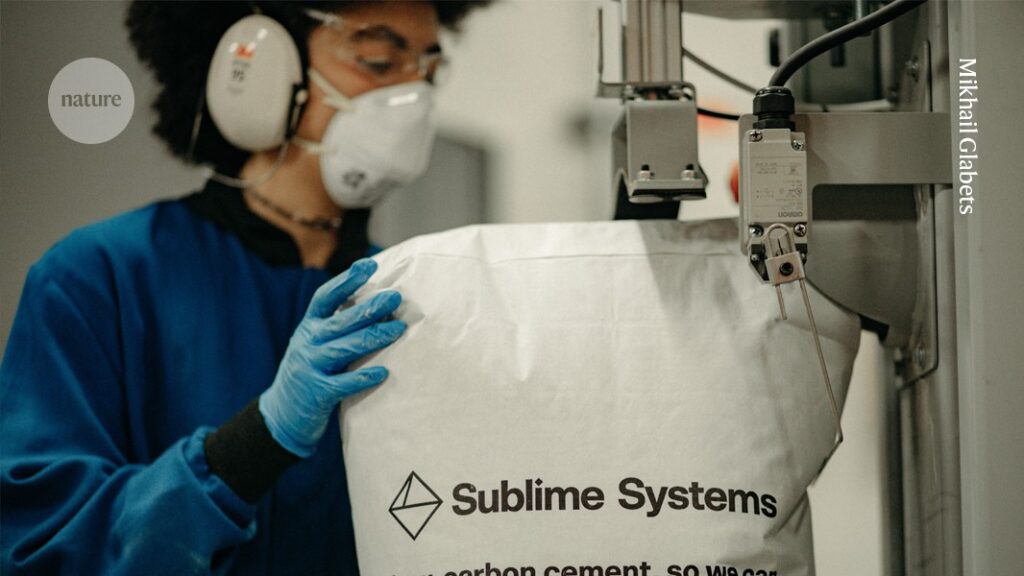After looking for words that rhymed with lime, Sublime was the immediate and obvious winner.Credit: Mikhail Glabets
For about 18 months, I was doing my postdoc at the Massachusetts Institute of Technology (MIT) in Cambridge, working on what was to become Sublime Systems. At that point, my co-founder, Yet-Ming Chiang, a materials scientist at MIT, engineer and serial entrepreneur, recognized it was the right time to spin it off from the university as a start-up company. At that stage, it needed a name.
In my view, coming up with a name is both important, because it sets the tone, and not important. The name is just a label.
The key reactive ingredient in cement — and the most carbon intensive — is lime, calcium oxide. So, I started there, browsing a rhyming dictionary for words that rhymed with lime. Sublime was the immediate and obvious winner.
In contrast to the grey cement made through the conventional process of burning limestone with bituminous coal, the manufacturing process we use to create cement results in a whiter version that is more purified, consistent in terms of both colour and quality, and beautiful.
I felt that the word Sublime encapsulated the spirit of excellence, transcendence and purity that we intend to exemplify as we build a technology and a company that we hope will change the world — and the inherent properties of cement itself.
Everyone quickly agreed on the name; it wasn’t a contentious decision. There was no ‘back and forth’, no other candidates. It immediately jumped out.
Striving for the sublime
We added ‘Systems’ because Sublime had already been taken by a cupcake company. But there was a second, more meaningful reason: our technology takes rocks and breaks them into their constituent minerals. That ‘Systems’ is plural is important. Although we’re addressing cement first, we hope that this technology can be applied to mining broadly, to process minerals from sources in which they were previously inaccessible, such as industrial wastes. So that is why the name references multiple systems — first, for cement manufacturing, and others in the future, such as sourcing material from incinerated electronic devices.
Some people, even those in the cement business, don’t get the meaning right away, and only months later do they understand. I think that’s kind of fun. Others are confused because there’s no sublimation in our process. But I do think that it’s evocative of something that transcends.

